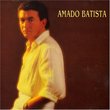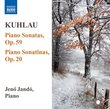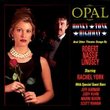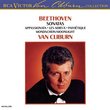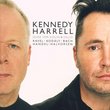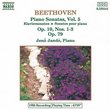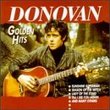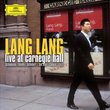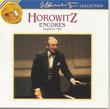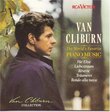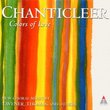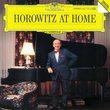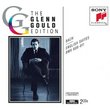| All Artists: Roy Harris, Jorge Mester, Lawrence Leighton Smith, Robert Whitney, Louisville Orchestra Title: Roy Harris: Symphony 1933; Concerto for Violin and Orchestra; Symphony No. 5 Members Wishing: 0 Total Copies: 0 Label: Albany Records Release Date: 1/20/1993 Genre: Classical Styles: Forms & Genres, Concertos, Historical Periods, Modern, 20th, & 21st Century, Instruments, Strings, Symphonies Number of Discs: 1 SwapaCD Credits: 1 UPC: 034061001225 |
Search - Roy Harris, Jorge Mester, Lawrence Leighton Smith :: Roy Harris: Symphony 1933; Concerto for Violin and Orchestra; Symphony No. 5
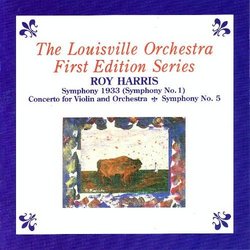 | Roy Harris, Jorge Mester, Lawrence Leighton Smith Roy Harris: Symphony 1933; Concerto for Violin and Orchestra; Symphony No. 5 Genre: Classical |
Larger Image |
CD DetailsSimilar CDsSimilarly Requested CDs
|
CD ReviewsOnly available recording of Harris Symphony No. 5 Charles Taylor | Warner Robins, GA United States | 07/31/2000 (5 out of 5 stars) "The Louisville Orchestra made some great recordings in their series of subscription LP's in the 50's and 60's. This performance of the Harris Symphony No. 5 is the only one available. I have the old Louisville LP and, though the sound of the CD is a little pale next to that, this is still a wonderful recording with the orchestra playing at their best. The recording of the Violin Concerto is also good. The Symphony No. 1, conducted by Jorge Mester, however, is a pretty poor performance. For that piece, the old Koussevitsky is far better. Buy this disc for the Symphony No. 5." Highly enjoyable Harris Discophage | France | 12/11/2007 (5 out of 5 stars) "I am not as familiar with the Symphonies of Roy Harris as I am with those of these other recognized masters of the 20th-Century American Symphony, Schuman, Mennin, Sessions and even Piston (see my various reviews). Previous encounters with the music of Harris had left me with the impression of hearing too much of the American prairie-style (pastoral flute/oboe over carpet of strings) and epic bombast one associates with American symphonic writing of the late 1930s to early 1950s (and particularly with composers such as Copland, Thomson and Hanson - but even Mennin and Schuman have resorted to that kind of writing in their early symphonies), the ultimate effect (on me) being that of triteness. But it fact, I enjoyed this disc of Louisville reissues, with symphonies 1 & 5 (two Koussevitsky/Boston premieres, from 1933 and 1943) and the (2nd) Violin Concerto from 1949 (the first one was meant for Heifetz but left uncompleted in 1938).
The 1st symphony from 1933 is exuberant, busy and dramatic, epic withouth being bombastic. Other than that, the first movement has fleeting reminiscences of Stravinsky (in the ostinatos that bridge the dramatic opening and the lyrical section, starting at 2:30), and a final recapitulation which obsessively repeats on timpanis the opening "fate" motive of Beethoven's 5th. The 2nd movement starts with the plangent oboe alright, but I don't find it excessively lachrymose. It develops as a long-lined lament (the film music of Honegger came to mind) and despite its occasional flights into the sentimental it is sufficiently varied and full of unexpected events as to keep one's attention. Likewise the finale returns to the triumphant mood of the beginning and again is full of ear-catching musical events. Harris must have had an infatuation with Beethoven, as the 1st movement of his 5th Symphony is built on a cantering rhythmic cell which is the same as the first movement of Beethoven's 7th, lending it great rhythmic vitality. In the context of Harris, it is difficult not to think of a horse-riding cowboy. The music is lively, affirmative, triumphant, and also short enough (4:38) and sufficiently full of musical events as to offset any sense of bombast. The second movement is an impressive kind of meditative funeral march, starting with a dialogue between intensely lyrical strings and plaintive woodwinds over a chordal ostinato, rising (and accelerating) to a climax of epic grandeur pitting the strings against an agitated trumpet. The finale has rhythmic snap, busy orchestral activity often again woodwinds or brass pitted against the strings, giving it a sense of heroism and self-affirmation. After three minutes the music eases down to a moment of great beauty, with antiphonal strings, almost choral-like, and whiffs of solo trumpet and horns regularly emerging from and disappearing back into the texture, all rising to a triumphant conclusion. The Violin Concerto of 1949 had a chequered history, as its premiere, planned to happen in Cleveland with Joseph Gingold under Szell, was postponed as the rehearsals had already begun, due to discrepancies between the conductor's score and the orchestral parts. How frustrating that must have been, both for the composer and the soloist! I suppose the liner notes do not tell the complete story, and I find it surprising that Szell shouldn't have re-scheduled the Concerto. Anyway, it lay dormant until 1984, when Fulkerson and Zimmermann, the performers of this recording, gave its belated premiere with the North Carolina SO, about a year before this Louisville recording, made in 1985. Other than a wonderfully exubertant but short-lived orchestral opening, the mood is mostly lyrical and restrained, reminiscent of Violin Concertos I've recently heard and reviewed by Milhaud, Casella, Malipiero or Rodrigo, while its grandiose and heart-lifting finale is faintly evocative of Britten. It breaks no grounds but is a fine piece in its genre, imaginative and deeply-felt, and it is incomprehensible that it should not enjoy the same popularity as, say, Barber's. This Albany disc was one of the first in a short-lived collaboration between the label and the Louisville Orchestra, which yielded no more than ten releases in the late 1980s. It collates the most substantial compositions of Harris recorded by the orchestra and first released on its own LP label, the famous Louisville First Edition Records. The 5th Symphony came on LOU 655 with Creston's "Corinthians: XIII" (reissued on Barber/Toch/Creston: Orchestral Music) in 1965. The 1st Symphony (recorded in 1978) and the Concerto were paired together on LS 786. Part of that material has been reissued on First Edition Music FECD 005 (Harris: Symphony 5/Con Vn/Kentucky Spring/&), shorn of the 1st Symphony and augmented of "Kentucky Spring", a 1960 Whitney recording that had originally come out on Lou 602 with Klaus Egge's 3rd Symphony (unreissued) - but given the value of the 1st Symphony I can't imagine that the exchange is a favorable one. The remainder of Harris/Louisville recordings consists of "Epilogue to Profiles in Courage" (a tribute to JFK) and "When Johnny Comes Marching Home", both reissued on The Louisville Orchestra-First Edition Encores. This is then a fine introduction to the music of Harris and an indispensable acquisition for any one interested in that composer, and/or in 20th Century American symphonic writing. " |

